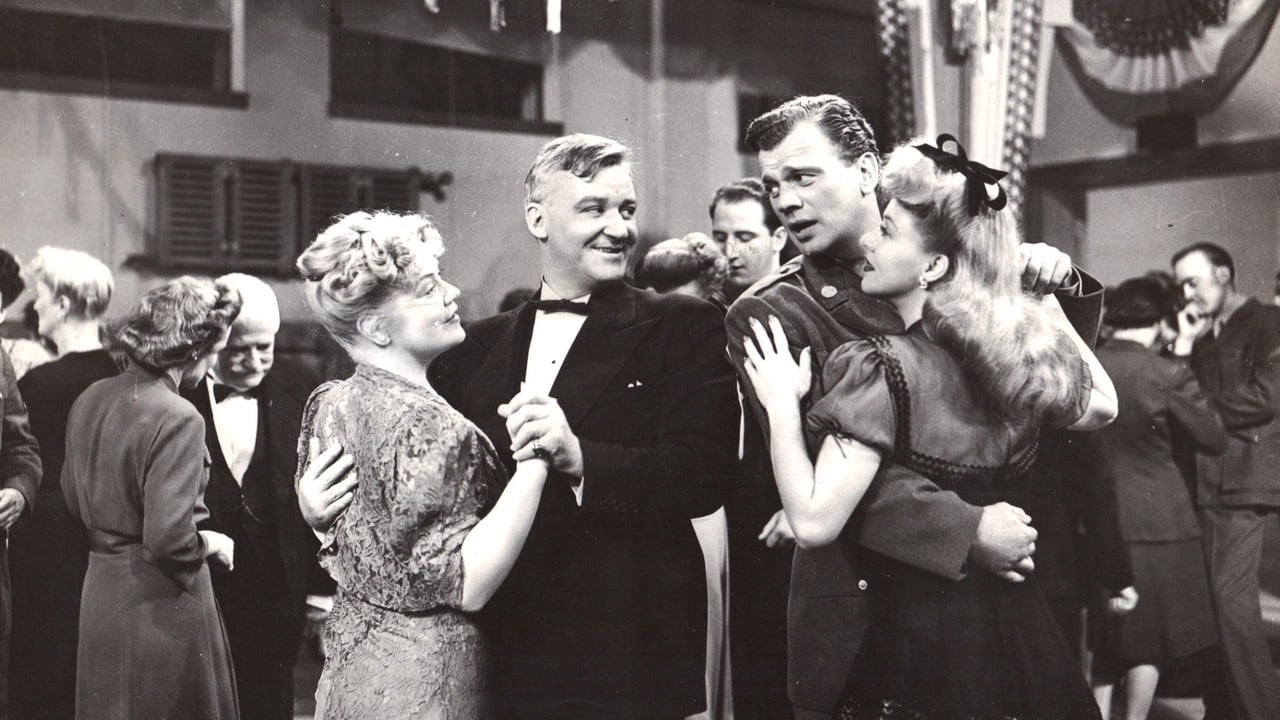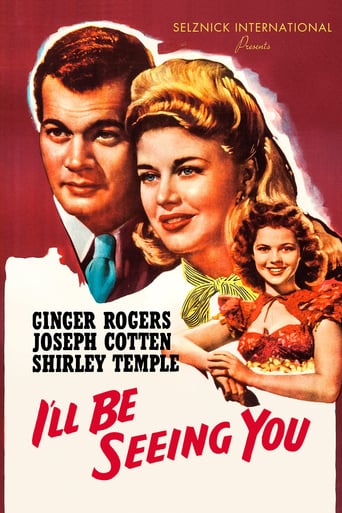

I'LL BE SEEING YOU (1944) will, for once and for all, change all perceptions of Hollywood during WWII. This very adult, mature and touching film deals with a soldier suffering from PTSD and a woman on furlough from prison for the holiday season. Devoid of all sentimentality, I'LL BE SEEING YOU deals frankly with the impact of war on soldiers while equally dealing with the hardships facing Americans during the war and in particular the plight of women, not as they wait for their men to return but as they are exploited both for labor and sex. What's perhaps best about I'LL BE SEEING YOU is that it stays clear of easy plot points and conflicts you may expect and instead paints a portrait of sadness and hardship but simultaneously the true and right way we humans should behave. Simply stellar!
... View MoreDavid Selznick produces an unusual picture starring Ginger Rogers, Joseph Cotten and a teenage Shirley Temple. This one is about the casualties of war on the home front. It is all very subtle and understated, and it could have seemed much more contrived in lesser hands.What's key here, for 1944, is that the filmmakers are not afraid to present a dark subject about a soldier experiencing traumatic stress disorder. This fact is even more significant considering the story has been produced during the war, with patriotism at its most fervent. There are some beautiful holiday scenes in this movie and the two lead characters are given a truly romantic storyline. Ultimately, it is an uplifting picture. I recommend seeing it.
... View MoreGreat performances by GINGER ROGERS and Joseph COTTEN make this otherwise slight film worth watching. The film had a great premise but after a point you realize that the makers were only interested in making a feel good movie with a few dark elements. And the supporting cast except for SPRING BRYINGTON is pretty awful. They included a lot of loud and obnoxious characters as a foil for the two melancholic and understated leads.Joseph COTTEN's performance needs special mention. He is such an effortless actor who puts his remarkable screen presence to great use. GINGER ROGERS was a little too beautiful and well dressed to pass off as a woman out on parole.The film does have a christmasy feel to it despite some gripping scenes (like that very violent fight with the dog). Ginger Roger's family was particularly annoying and their presence during the interactions between the two leads curtailed any meaningful plot development.(6/10)
... View MoreThis is not a traditional Christmas movie, but it is set a week before Christmas and ends just after the New Year. For that reason, I do watch this film every holiday season, because it captures the old fashioned family and Christmas mood so well. Yes the story may be a little bit overly maudlin, and off-beat, but somehow it works, and remember this is the 1940s. The cast is a perfect ensemble for this story. Joseph Cotten plays a shell-shocked soldier, his doctors have furloughed him for the Christmas holidays, and he encounters Ginger Rogers, on a train going to visit her relatives for the holidays, but she has a dark secret, she to is on a furlough from prison. Joseph Cotten gives a marvellously balanced performance, that creates real depth to his character. Ginger Rogers acting is very pleasing, for you can really feel how hard it is for her to keep the secret hidden from Cotten, making her character's quandary all the more believable. Shirley Temple was a real teenager when this film was made, and she is perfect for her part, sweet but as all teenagers are, thinks she is just as smart as the adults. Spring Byington is her usual warm and lovable self as the Aunt of Rogers and Temple's mother. Tom Tully rounds out the cast as Byington's laid-back, understanding husband. Put it all together and surprisingly you have a lovely, heartwarming story, chock full of sentiment. I suggest it's worth a look.
... View More